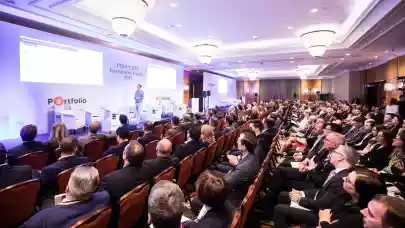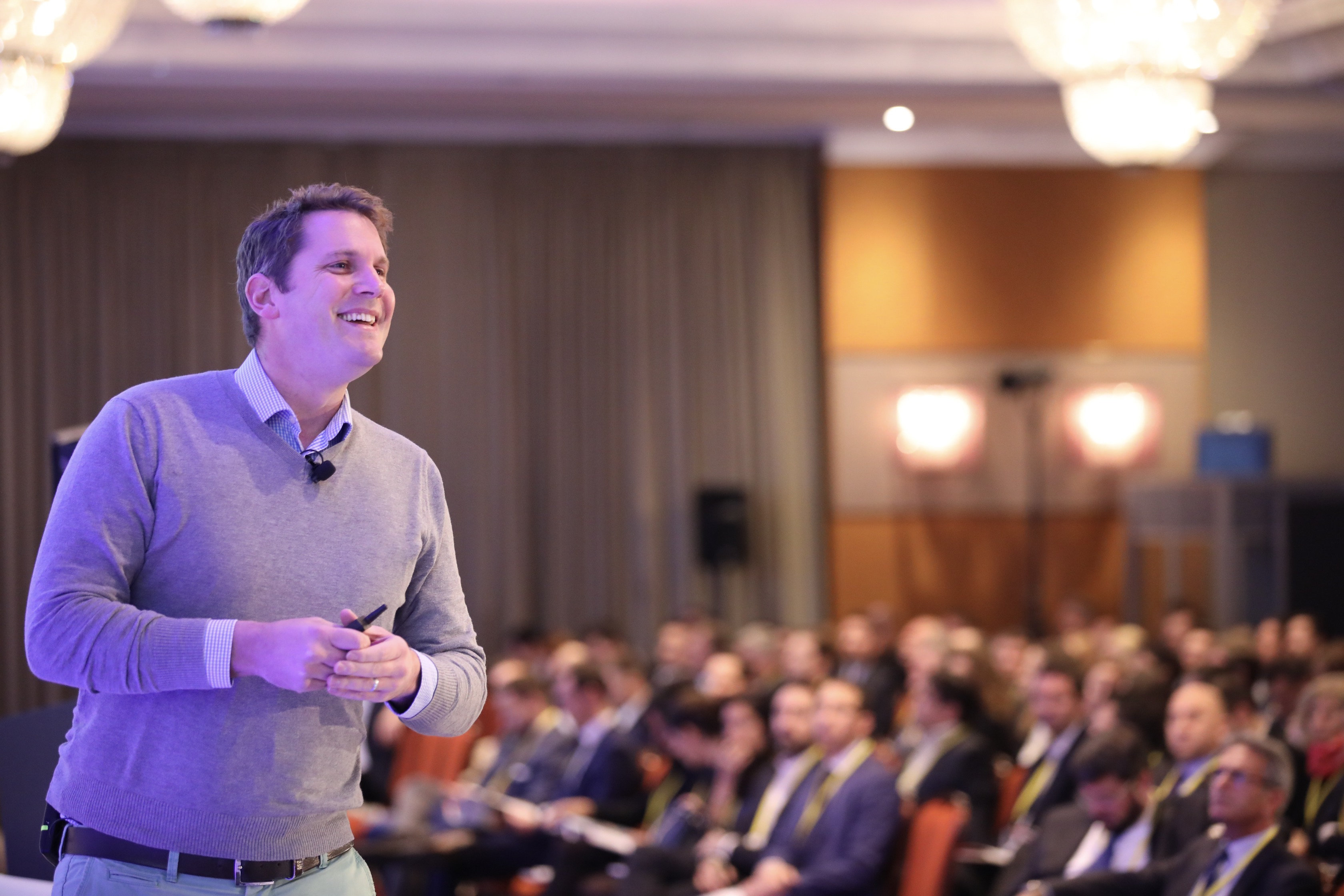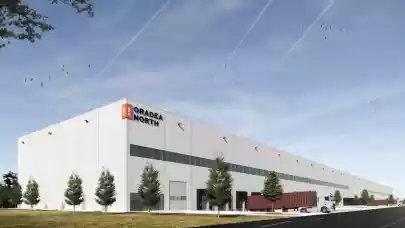
There is an ongoing mentality shift in the property industry which not just about technology, proptech guru James Dearsley revealed at the largest event on the Hungarian property market. Over 700 participants and nearly 100 speakers gathered at the 13th Portfolio Property Investment Forum in Budapest which focused on the future of real estate.
“Proptech isn’t a thing, it’s a symptom of a larger transformation”
In his keynote speech James Dearsley, the Founder of The Digital Marketing Bureau talked about proptech and its impact on our business. He believes that proptech is not about technology, it’s about a mentality shift. All technological innovation goes through a hype cycle and in the case of proptech Mr. Dearsley is convinced that we’re just about to reach the peak of inflated expectations. It’s the job of proptech companies to help proptech not hit the trough of disillusionment. It is collaboration that can help reach the plateau of productivity, he added.
The amount of money that has been invested by venture capital firms (mainly from America and Asia) in proptech has increased significantly in the past four years. Real estate is the largest asset class in the world and venture capitalists are making a bet that real estate technology is where the money will be for the next 5-10 years.

The near future seems bright for CEE – What to expect for 2018?
According to Noah Steinberg FRICS, Chairman of RICS in Hungary and CEO-Chairman of Wing, we have seen Hungary’s relative ascension within CEE in recent years. Hungary is one of the only core CEE markets where we can still see a consolidation of prices, Paul Betts, Managing Director for CEE at M7 Real Estate, added. He’s confident that the massive growth in online retailing that can be seen globally will increase the importance and value of last mile logistics. He believes that high streets will keep their position but shopping centres will need to provide a shopping experience in order to stay in the race. In light of this, he is careful when looking at retail, but excited to look at logistics.
Benjamin Perez-Ellischewitz MRICS, Regional Director, Head of Capital Markets Hungary at JLL, highlighted the diversification of equity sources as the most significant change on the local investment market. Traditional investors are not the driving source any more. Both global and local players are active in Hungary which means that the market is in a more robust position to withstand a crash.

Jan Hübner, CEO of HB Reavis Hungary, finds that the outlook is very positive and Hungary is doing well in a regional comparison. Labour shortage and rising construction costs, however, remind him of the situation that had seen in 2006/2007, just before the crisis. He believes that there is still an opportunity to move workers between countries within the region. Still, productivity in construction needs to increase, he emphasised.





